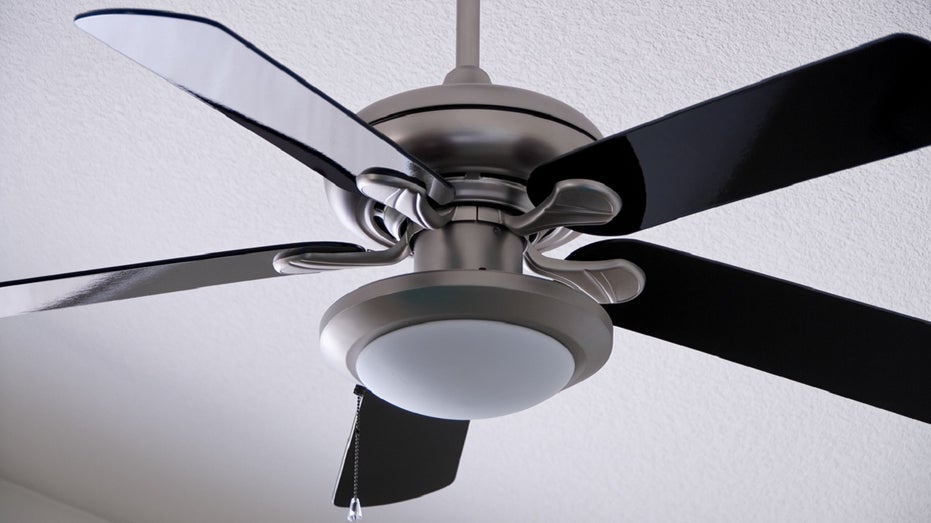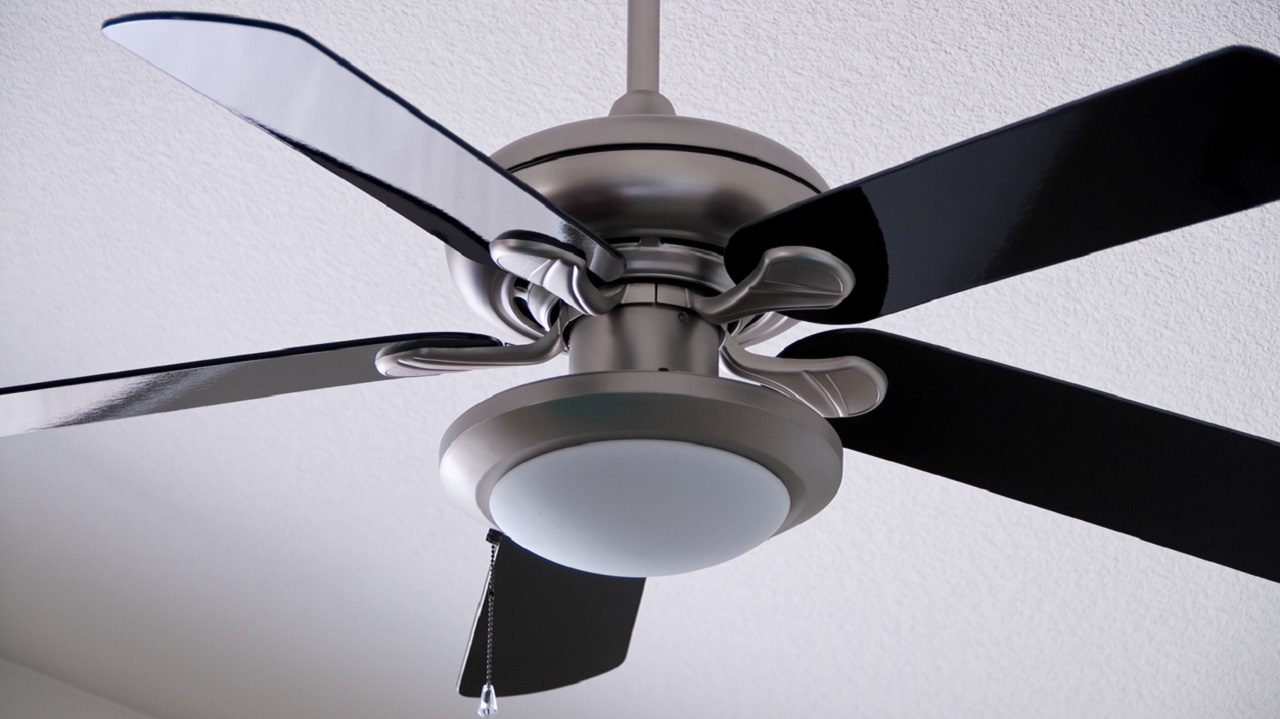Biden admin's latest home appliance crackdown: ceiling fans
Department of Energy wants ceiling fans to be more energy efficient
Biden administration proposes crackdown on ceiling fans
FOX Business' Hillary Vaughn provides details on the Department of Energy's proposal to make ceiling fans more energy efficient and the potential impact on businesses.
Ceiling fans are now the latest target in the Biden administration's green agenda, sparking pushback from Republicans and manufacturers.
The Department of Energy is proposing a rule that would require ceiling fans to be more energy efficient, arguing the move would save U.S. households on energy costs.

The Department of Energy wants to require ceiling fan manufacturers to make the appliances more energy efficient. ( / iStock)
According to the Energy Department's analysis, the new rules would save households about $39 over the lifespan of the new energy-efficient fan. However, the cost to manufacturers associated with the increased equipment will total $86.6 million per year, the department said.
BIDEN ADMINISTRATION'S WAR ON APPLIANCES IS JUST GETTING STARTED
Republicans on the House Committee on Small Business say that if the rule goes into effect, it could put small manufacturers out of business, given the costs the companies would incur in order to comply with the changes.

Energy Secretary Jennifer Granholm speaks during the daily briefing at the White House on June 22, 2022. (Susan Walsh / AP Newsroom)
"This rule would require numerous small business fan manufacturers to redesign their products and may put between 10 and 30 percent of small business ceiling fan manufacturers out of business," the GOP members of the committee wrote in a letter to Energy Secretary Jennifer Granholm on Thursday. "It appears that the Department of Energy (DOE) may not have properly considered small entities during this rulemaking process."
BLACKROCK TURNED DOWN RECORD NUMBER OF CLIMATE PROPOSALS AMID INFLATION, ESG PUSHBACK
In a statement to FOX Business on Friday, a DOE spokesperson defended the potential new rule changes, saying, "These proposed standards, which are required by Congress, wouldn’t take effect until 2028, would give Americans more energy efficient options to choose from, and would save hardworking taxpayers up to $369 million per year, while substantially reducing harmful air pollution — a crucial fact that some have conveniently failed to mention."
The agency said standard residential ceiling fans complying with the proposed rule would cut consumers' electricity costs to operate fans by roughly 40% compared to with the least-efficient fans currently on the market. The DOE estimates the purchase price of fans would increase by around $10 a piece if the new regulations are put in place, and says that additional cost would be covered by energy bill savings in about four years.
The Energy Department has been on the warpath to impose more stringent regulations on household appliances for the past several months, proposing new standards for gas stoves, ovens, washing machines, refrigerators, air conditioners, dishwashers and other essentials as part of its mission to advance energy efficiency and conservation.

President Biden speaks at Ingeteam Inc., an electrical equipment manufacturer, in Milwaukee, on Aug. 15, 2023. Biden spoke about his economic plan on the one-year anniversary of the Inflation Reduction Act. ( / Getty Images)
On his first day in office in January 2021, President Biden signed an executive order requiring the Energy Department to make "major revisions" to current appliance regulation standards and standards set by the Trump administration. A month later, the agency listed more than a dozen energy-efficiency rules impacting appliances like water heaters, cooking products and lamps, that it would review.
GET FOX BUSINESS ON THE GO BY CLICKING HERE
"Their philosophy is energy efficiency at all costs or energy efficiency no matter the cost," a former senior Energy Department official, who served during the Trump administration, previously told Fox News Digital. "That means we are going to see, as a result of their efficiency standards, higher-priced appliances. It's that simple."
FOX Business' Hillary Vaughn and Thomas Catenacci contributed to this report.





















